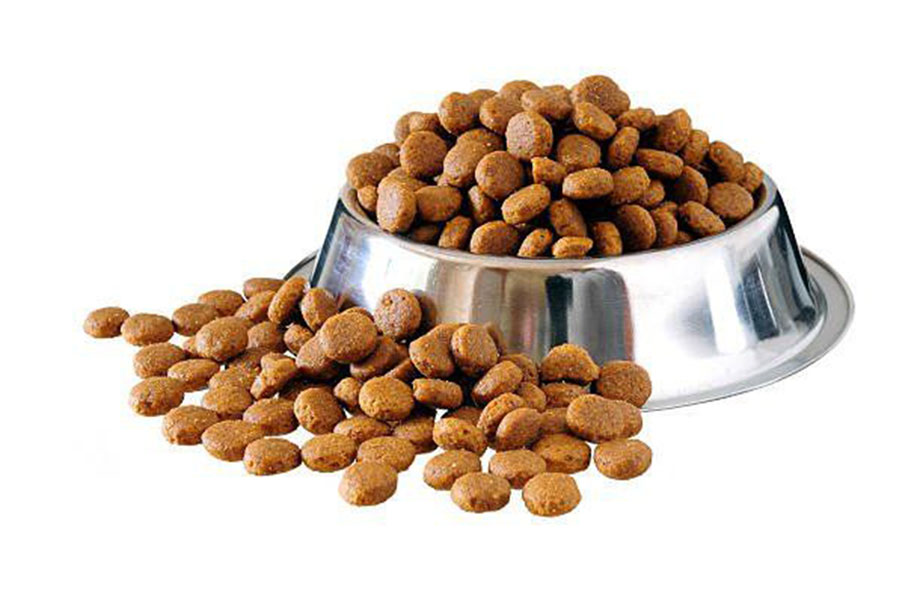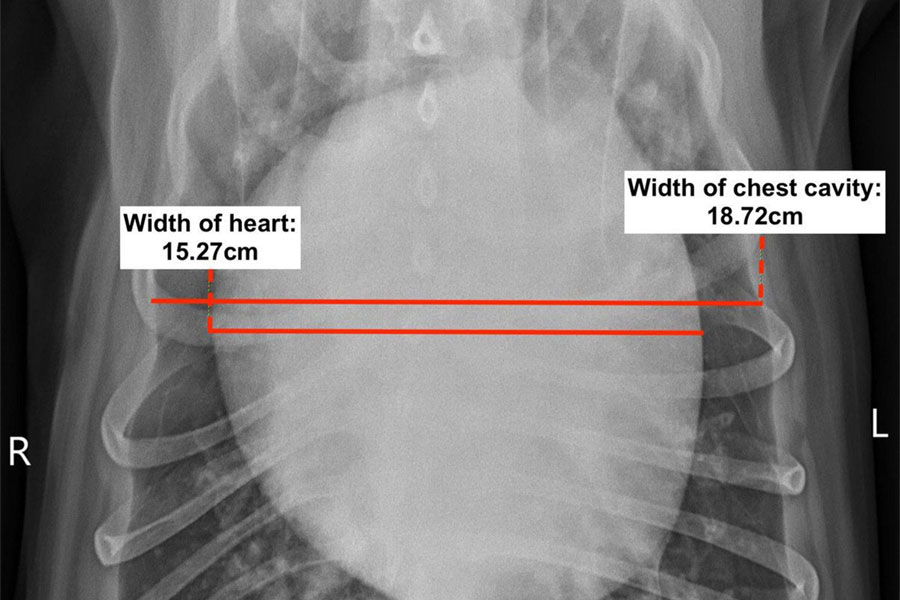Grain-Free Dog Food and Heart Disease – Is There a Link?
The FDA Recognizes a Possible Link Between Grain-Free Diets and Heart Disease in Dogs

In July 2018, the United States FDA (Food and Drug Administration) released a statement about a possible link between grain-free dog food and a type of heart disease in dogs called Dilated Cardiomyopathy (DCM). Parts of this statement are as follows:
“The U.S. Food and Drug Administration is alerting pet owners and veterinary professionals about reports of canine dilated cardiomyopathy (DCM) in dogs eating certain pet foods containing peas, lentils, other legume seeds, or potatoes as main ingredients. High levels of legumes or potatoes appear to be more common in diets labeled as “grain-free,” but it is not yet known how these ingredients are linked to cases of DCM. These reports are unusual because DCM is occurring in breeds not typically genetically prone to the disease.”
In response, the FDA has opened an investigation into the possible link between dog food diets and Dilated Cardiomyopathy in dogs.
What are Grain-Free Dog Food Diets?
Grain-free dry dog food diets eliminate traditional grains such as corn, wheat and rice as a carbohydrate sources and replaces them with novel ingredients like peas, lentils, potatoes and sweet potatoes. Grains like corn, wheat and rice have developed a bad reputation in the pet food world due to marketing campaigns that implicate them as cheap fillers and causes of food allergies. These unfair claims are part of a more complicated nutritional story. These grains can be high-quality nutritional sources of carbohydrates in a nutritionally balanced food. As for food allergies, grains can be the culprit, but we find it to be rare. More commonly, we find protein sources like beef or chicken to be the allergen. Grain-free diets should be considered in those rare cases where a pet has been diagnosed with a grain allergy by a food elimination trial with your veterinarian. A grain-free diet is not necessarily a healthier choice for a non-allergic pet. Due to the complex nature of pet nutrition, please consult with your veterinarian if you have any questions about whatdog dietis best for your pet. Your veterinarian is your most knowledgeable resource as they are trained inpet nutrition.

What is Dilated Cardiomyopathy?
Dilated Cardiomyopathy (DCM) is a heart disease that affects both dogs and cats. DCM is a disease that has genetic, nutritional, and infectious causes. Historically, it is recognized as a genetic disease affecting large breed dogs, most commonly Doberman Pinschers, Boxers, Great Danes and Irish Wolfhounds. It has also been seen in Cocker Spaniels and cats due to Taurine (an amino acid) deficiency. DCM results in changes to the heart muscle that prevent it from contracting properly. The result is an inability to pump blood effectively through the body.

The heart tries to compensate and eventually becomes enlarged and distended. Symptoms can include; weakness, collapse, fluid retention and breathing problems. As the disease progresses it can lead tocongestive heart failureand arrhythmias. The disease results in serious illness, and if left untreated, death.
Are Grain-Free Diets Causing Dilated Cardiomyopathy?
The latest report from the FDA states that although they have not identified a direct link between grain-free dog food and heart disease, there is still more to investigate. A spike in the reporting of new cases of Dilated Cardiomyopathy in dogs that are not genetically predisposed to the disease and being fed grain-free dog food is the reason the FDA is investigating. Nutritional deficiencies like Taurine in cats and Cocker Spaniels, and a dietary deficiency in Carnitine in Boxers, have already been linked to DCM and prove there is a nutritional connection in some of these cases. The investigation so far has not been able to show a direct link to one specific factor in these new cases. There are likely many influences at play. A multifactorial cause of the disease has been suspected for a while, but this new research may help to identify how they are all related. The FDA states:
“Based on the data collected and analyzed thus far, the agency believes that the potential association between diet and DCM in dogs is a complex scientific issue that may involve multiple factors.”
Future research and investigation will hopefully sort out this complicated issue. Until then, be sure to make decisions based on the most current information available. We will keep you updated through ourveterinary blogwhen we know more.
Making Informed Nutritional Decisions for Your Pet
As the sole provider of nutrition for your pet, you should make sure you are getting accurate and qualified recommendations on dog food from a trusted source. Your veterinarian should be your first point of contact for nutritional recommendations. If you have any questions about your dog’s food or diet and how it could affect his/her health, pleasecontact your veterinarian.Our goal is to help you have the information you need to make the healthiest choices for your pet.
– Dr. Lia Morley
References
- FDA Investigation into Potential Link between Certain Diets and Canine Dilated Cardiomyopathy. https://www.fda.gov/animal-veterinary/news-events/fda-investigation-potential-link-between-certain-diets-and-canine-dilated-cardiomyopathy
- Canine Dilated Cardiomyopathy (DCM), Cornell University College of Veterinary Medicine. https://www.vet.cornell.edu/hospitals/companion-animal-hospital/cardiology/canine-dilated-cardiomyopathy-dcm
- Images courtesypixabay.comandwww.freeimages.com